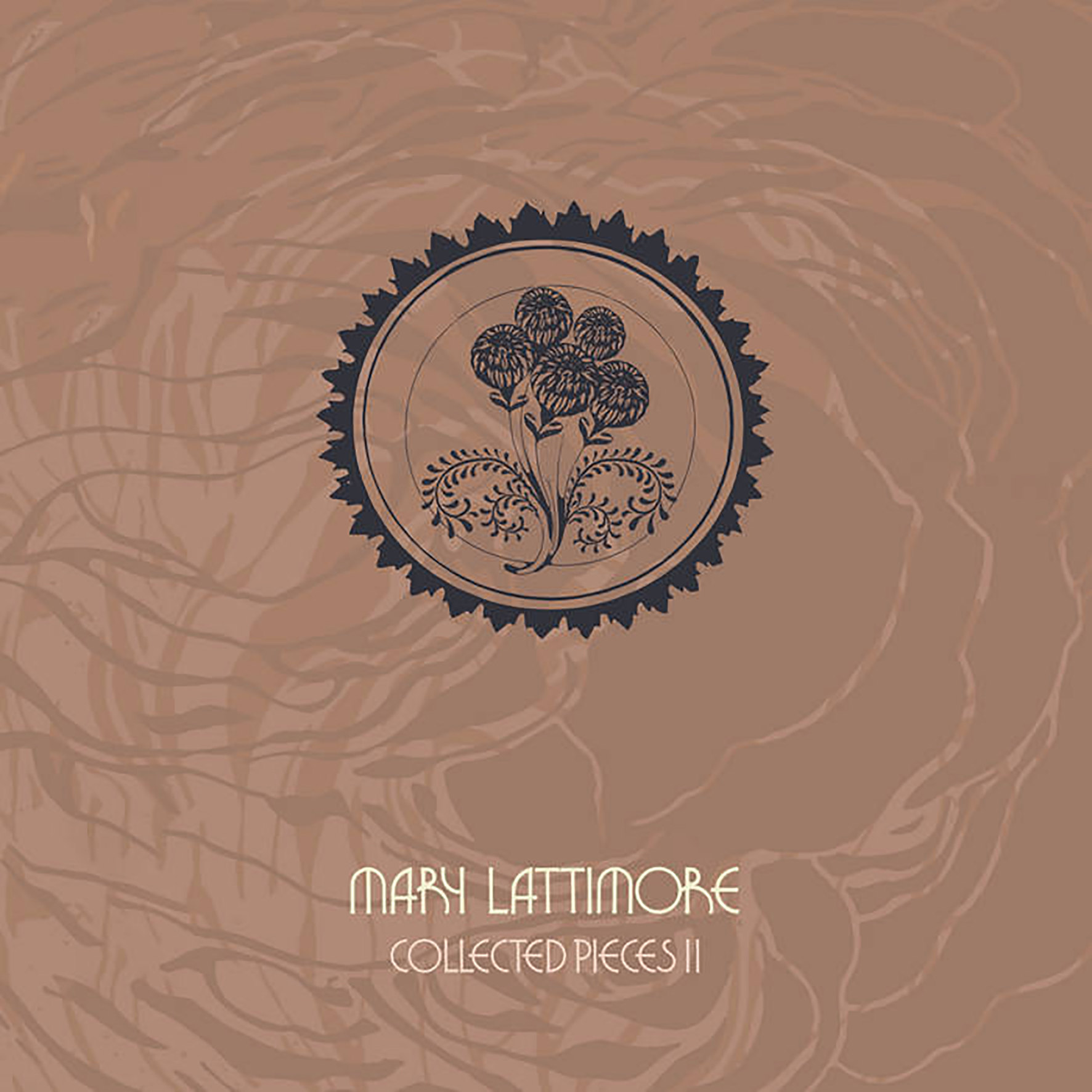 I believe I first started to become beguiled with Mary Lattimore's work with the release of 2016's At the Dam, but the following year's Collected Pieces definitely deepened my interest further, as it featured at least two stone-cold instant classics (and the rest of it consistently flirted with similar levels of greatness). While that first collection sets the bar intimidatingly high for this second cassette of unreleased songs, digital-only Bandcamp singles, and other stray pieces, Lattimore tends to be admirably discriminating in what she chooses to release and she has been on a bit of a compositional hot streak over the last couple years. Needless to say, there is plenty to enjoy here. As a whole, this second volume is probably a bit less uniformly strong than its predecessor, but it too contains a few pieces that most Lattimore fans will consider essential. Moreover, a couple of them are not included on the Collected Pieces: 2015‚Äã-‚Äã2020 double LP slated for release in January. As such, only casual Lattimore fans can safely pass up this stand-alone collection, as serious harp-heads will probably not want to deny themselves the pleasures of "Sleeping Deer" and "Princess Nicotine."
I believe I first started to become beguiled with Mary Lattimore's work with the release of 2016's At the Dam, but the following year's Collected Pieces definitely deepened my interest further, as it featured at least two stone-cold instant classics (and the rest of it consistently flirted with similar levels of greatness). While that first collection sets the bar intimidatingly high for this second cassette of unreleased songs, digital-only Bandcamp singles, and other stray pieces, Lattimore tends to be admirably discriminating in what she chooses to release and she has been on a bit of a compositional hot streak over the last couple years. Needless to say, there is plenty to enjoy here. As a whole, this second volume is probably a bit less uniformly strong than its predecessor, but it too contains a few pieces that most Lattimore fans will consider essential. Moreover, a couple of them are not included on the Collected Pieces: 2015‚Äã-‚Äã2020 double LP slated for release in January. As such, only casual Lattimore fans can safely pass up this stand-alone collection, as serious harp-heads will probably not want to deny themselves the pleasures of "Sleeping Deer" and "Princess Nicotine."
There a few things that one can reliably expect from a new Mary Lattimore album: plenty of tenderly beautiful melodies, lightness of touch, and an intuitive genius for dynamics. Consequently, even the lesser pieces on Collected Pieces II are quite good, but the reason I absolutely need to hear everything that Lattimore releases is that she occasionally reaches heights of inspiration that transcend the fundamental limitations of a harp album altogether and I do not want to miss any of those moments. Some of those moments are a more radical departure than others though and one of the less radical ones is the album's lead single "We Wave From Our Boats," which dates from the earliest days of the pandemic (Lattimore found herself waving to neighbors she did not know "in a gesture of solidarity" akin to "how you're compelled to wave at people on the other boat when you're on a boat yourself"). Apparently, it was an improvisation, but the delicate, bittersweet melody is wonderful and I love the way the flutes add a bleary haze of unreality that slowly burns away to reveal a warm, sun-dappled crescendo. "For Scott Kelly, Returned to Earth" is another winning foray into expected Lattimore terrain, as layers of rippling, sweeping, and pulsing arpeggios cohere into a vibrant and twinkling web of sublime loveliness. Both pieces are wonderful, of course, but I am especially fond of two comparative outliers that found their way onto the album. The first is the previously unreleased "Sleeping Deer," which was inspired by an orphaned deer (Lollipop) that Lattimore befriended during a residency on a Wyoming cattle ranch. Despite its adorable inspiration, it is probably the darkest piece on the album, as its tender, sadness-tinged melody is enhanced with stammering effects, backwards snarls, and pitch-bending bass drones. The other surprise gem is the textural tour de force of "What the Living Do," as a simple repeating melody is processed into something glimmering and spectral that calls to mind ghosts slowly dancing in the light of a stained glass window. The album is rounded out with a pair of pieces inspired by silent films (always nice to see a Bill Morrison reference), an unexpectedly radiant breakup song, a home-recorded version of Silver Ladders' "Pine Trees," and a 13-minute epic about "a Charlie Chaplin-like character who lost their glasses." Overall, it is yet another strong batch of songs from Lattimore, reaffirming that her home recordings can be every bit as transfixing as her studio ones (even if she leaves her effects pedals largely untouched).
Samples can be found here.
Read More

